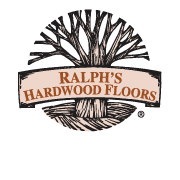Making sure your home’s hardwood floors stay in good condition involves not only regular maintenance but also possibly an occasional repair if your floors become damaged. So, when should you take on the restoration yourself and when should you call in a professional flooring expert?
Of course, the answer will depend on your skill as a do-it-yourselfer and your familiarity with hardwood flooring repair. But no matter your aptitude level, the following considerations should be part of your decision.
The Time Frame
Unexpected things can happen that delay a project. Would you be okay with having an unfinished floor in the meantime? A professional can do the job within a set timeframe, so you will be less likely to face that scenario.
A pro also will likely be able to complete the task sooner, so you’ll be able to enjoy your restored flooring sooner.
Scratches or Stains
If you're dealing with small stains or scratches, a do-it-yourself (DIY) job will likely be sufficient using techniques you can easily find online. For dark and/or large stains or deep scratches, most homeowners will need experts to do the job right.
Split Wood
As flooring gets older, it becomes susceptible to cracks, and a small split in the wood can gradually widen. A specialist can fix the issue by joining the split wood with a nail and hiding the nail with stain and wood putty.
You could try that yourself, but a mistake could easily leave you with an unfixed split and a worse visual blemish than before.
Water Exposure
Significant water exposure can seriously damage your flooring. As water goes through the stain and gets to the wood grain, the wood can start to warp and swell. If only a small portion of the space has been exposed, it could be possible to replace the wood only in that area.
However, these spot repairs can be complicated. You must find identical flooring material and seamlessly meld it with the existing floor. This is a job beyond the skill of most non-experts.
Gapping
Unfortunately, hardwood floors naturally dry out and shrink when the air in your home is too dry, and the same flooring will expand with excessive humidity. This fluctuation in air moisture is the most common cause of gaps in the floor, so most gaps tend to be seasonal in nature.
Sometimes, all you need is patience. The gaps will naturally close as the weather and humidity level changes. For instance, it’s considered normal if the gap is smaller than the thickness of a dime.
However, If your gaps are more serious, you should contact a seasoned hardwood floor expert.
Buckling
Because wood expands in warm temperatures with high humidity, if it doesn’t have enough room to do so, it will buckle. As with gapping, this problem usually will fix itself as the weather cools and humidity decreases.
But in some cases, such as when the floor planks are installed too close together by an incompentent installation, repairing it is a professional-level undertaking.
Cupping
Cupped floors appear across the width of the strip when the edges of the planks go up and the middles of the boards go down. This cupping happens due to a moisture imbalance affecting the wood plank.
Balancing the humidity levels in your home and giving the flooring time to return to normal will usually restore your flooring to normal. If not, it’s time to call a hardwood flooring company.
Do you need help from a flooring expert? Feel free to contact us.
Image: Shutterstock















